Euchre, a beloved trick-taking card game, presents players with a myriad of strategic challenges and opportunities. However, mastering its intricate rules and optimal gameplay can be a daunting task for beginners. Moreover, finding reliable online platforms that offer a seamless Euchre experience can be a struggle due to the abundance of choices and varying quality.
The complexity of this game strategies, regional rule variations, and the lack of comprehensive learning resources often leave players feeling overwhelmed and discouraged. Additionally, the ever-growing online gaming landscape has made it challenging to identify trustworthy platforms that offer an authentic and enjoyable Euchre experience.
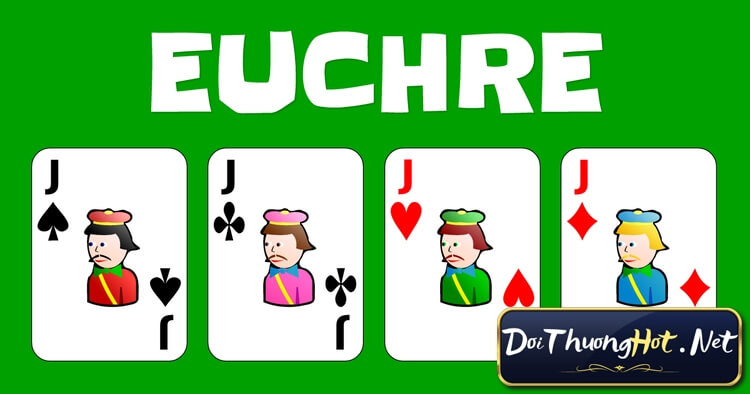
In this comprehensive assessment, we delve into the depths of this game , unraveling its fascinating history, explaining the rules and gameplay mechanics, and providing invaluable strategies for success. We also explore the world of online Euchre platforms, identifying reputable options that offer seamless multiplayer experiences.
Whether you’re a beginner seeking guidance or a seasoned player looking for a competitive edge, this review will equip you with the knowledge and resources to master the captivating game of this game.
I. Introduction
A. What is Euchre?
Euchre is a trick-taking card game played with a deck of 24 cards. It involves bidding, declaring a trump suit, and trying to win tricks to score points.
B. Brief overview of Euchre
Euchre is a popular trick-taking card game played with a deck of 24 cards, comprising the 9, 10, Jack, Queen, King, and Ace of each suit. The objective of this game is to be the first team to reach a predetermined number of points, typically 10 or 11. The game is usually played with four players in teams of two, with partners sitting across from each other.
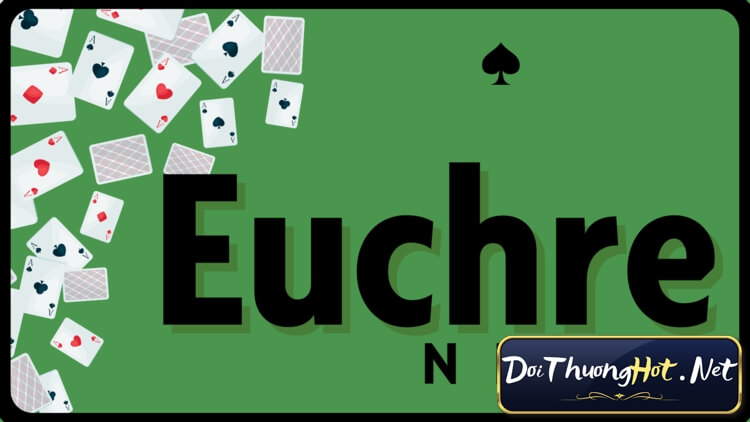
Before each hand, a trump suit is determined through a bidding process. The highest bidder gets to choose the trump suit and leads the first trick. The ranking of the cards is slightly different from standard card games, with the Jack of the trump suit being the highest-ranked card, followed by the Jack of the same color as the trump suit. The highest card of the suit led or the highest trump card, if any, wins the trick.
This game involves strategic decision-making, as players must evaluate their hand strength, bid accordingly, and play defensively to prevent the opposing team from reaching their bid. The game offers various variations and adaptations, adding to its versatility and appeal. Whether played casually among friends or in competitive tournaments, this game provides an engaging and challenging card game experience.
C. Purpose of the review article
The purpose of this review article is to provide a comprehensive and informative overview of the card game Euchre. By examining the history, rules, gameplay, strategies, variations, and its online presence, the article aims to equip readers with a deep understanding of this game. It serves as a resource for both beginners seeking guidance and experienced players looking to enhance their skills.

The article delves into the origins and evolution of this game, shedding light on its popularity and spread across different regions. It clarifies the rules and gameplay mechanics, including the objective, card rankings, bidding process, and scoring. Strategies for successful play, such as hand evaluation, bidding techniques, and defensive tactics, are explored to help players improve their game.
Additionally, the article addresses the various variations of Euchre that exist, including regional adaptations and different player configurations. It also delves into the online aspect of this game, providing insights into platforms, multiplayer options, and the pros and cons of playing the game online. Overall, this review article aims to serve as a comprehensive guide for anyone interested in understanding and mastering the captivating game of this game.
II. History and Origins of Euchre
A. Origins and evolution of the game
The origins of this game can be traced back to the early 19th century, with its exact roots still debated among historians. It is believed to have emerged in Europe, possibly deriving from a similar game called Jucker. Euchre gained popularity in the United States during the mid-19th century, particularly in the Midwest region, where it became a favorite pastime among settlers and later spread to other parts of the country.

Over time, Euchre underwent several changes and adaptations as it crossed borders and entered different cultural contexts. Regional variations emerged, introducing unique rules and nuances to the game. In some regions, the deck expanded to include additional cards, while in others, different scoring systems were implemented. These regional adaptations contributed to the diversity and flexibility of this game, allowing players to enjoy the game with local flavor.
Today, this game remains a well-loved card game, not only in its traditional form but also in its online iterations. Its evolution from a European card game to a cherished pastime in various parts of the world is a testament to its enduring appeal and ability to adapt to different cultural settings.
B. Popularity and spread of Euchre
Euchre’s popularity has spread far and wide, particularly in English-speaking countries. In the 19th century, Euchre gained significant traction in the United States, particularly in the Midwest, where it became a staple in social gatherings and community events. Its simple yet strategic gameplay, coupled with its suitability for larger groups, contributed to its widespread appeal.
>>> Read more: A Beginner’s Guide to Spades: Rules, Tips, and Strategies – A Complete Review
Euchre also found its way across the Atlantic to countries like Canada, Australia, and the United Kingdom, where it gained a devoted following. The game’s accessibility and the enjoyment it brought to players contributed to its continued popularity in these regions.
The advent of online gaming platforms further propelled the spread of this game’s popularity. Online Euchre games provided players with the opportunity to enjoy the game anytime, anywhere, and connect with fellow enthusiasts from around the world. This global accessibility has not only sustained this game’s popularity but also fostered a sense of community among players who share a passion for the game.
III. Rules and Gameplay
A. Objective of the game
The objective of the game in Euchre is to be the first team to reach a predetermined number of points, typically 10 or 11. The primary goal is to win tricks, which are individual rounds of play where players try to outplay their opponents by playing higher-ranked cards. To achieve this objective, players must employ strategic decision-making and teamwork.

- Scoring points: Each trick won contributes to the team’s score. The team that declared the trump suit aims to win at least three of the five tricks in a hand. If successful, they score points based on the number of tricks won. However, if the opposing team manages to prevent the declaring team from reaching their bid, they earn points instead.
- Bidding and declaring: The bidding phase is crucial in determining which team will have the opportunity to declare the trump suit and try to reach their bid. Effective bidding requires evaluating the strength of the hand and the potential to win tricks.
- Strategic play: Players must carefully choose which cards to play during each trick, considering the current trump suit and the cards played by other players. Defensive play, such as trumping opponents’ high-ranking cards, can prevent them from winning tricks.
B. Deck of cards and card rankings
The deck of cards and card rankings in this game follow a unique structure that sets it apart from standard playing card decks. Understanding the card rankings is essential to strategic gameplay. Here are key points to clarify this concept:
- Deck composition: Euchre is played with a specialized deck of 24 cards, comprising the 9, 10, Jack, Queen, King, and Ace of each suit. This differs from the standard 52-card deck.
- Trump suit: Before each hand, a trump suit is determined through bidding. The trump suit outranks all other suits, making its cards more valuable during gameplay.
- Card rankings: In Euchre, the ranking of the cards differs from traditional games. The Jack of the trump suit is the highest-ranked card, known as the “Right Bower.” The Jack of the same color as the trump suit, called the “Left Bower,” is the second-highest ranked card. The remaining cards follow a descending order: Ace, King, Queen, 10, and 9.
- Non-trump suits: When a non-trump suit is led during a trick, the card ranks as usual, with the highest card of that suit winning the trick.
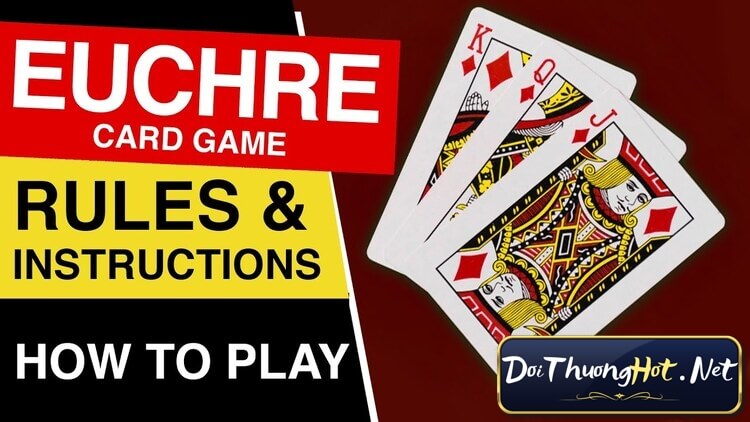
C. Determining the trump suit
The process of determining the trump suit in this game is a pivotal moment that significantly influences gameplay and strategy. Here are key points to clarify this concept:
- Bidding phase: Determining the trump suit occurs during the bidding phase before each hand. The player to the left of the dealer starts the bidding, and each player, in turn, has an opportunity to bid or pass.
- Choosing the trump suit: The highest bidder has the privilege of choosing the trump suit. They can select any of the four suits or opt to declare “pass” if they believe their hand is not strong enough for bidding.
- Second round of bidding: If all players pass in the initial round of bidding, a second round is held. In this round, players have another chance to declare a suit as the trump or pass once again.
- Order of suits: In the hierarchy of suits, the trump suit surpasses all other suits, followed by the suit of the same color as the trump. The remaining suits are considered non-trump suits.
D. Bidding and declaring
Bidding and declaring are integral components of this game that play a crucial role in determining the trump suit and setting the course of gameplay. Here are key points to analyze and clarify this concept:

- Bidding process: The bidding phase takes place before each hand, where players have the opportunity to bid or pass. The bidding rotates clockwise, starting from the player to the left of the dealer. Each player can bid by declaring the number of tricks they believe their partnership can win, or they can pass if they believe their hand is not strong enough for bidding.
- Highest bidder: The highest bidder, the player who makes the highest bid, wins the right to choose the trump suit for that particular hand. The chosen suit becomes the trump suit, outranking other suits in subsequent gameplay.
- Declaring a suit: The player who wins the bid declares the trump suit by stating it aloud or revealing a card of the chosen suit. This announcement influences the strategies and tactics employed by all players in subsequent tricks.
- Bidding strategies: Effective bidding strategies involve evaluating the strength of one’s hand, considering the potential to win tricks with different trump suits, and assessing the bidding of opponents. It requires a balance of confidence, risk assessment, and knowledge of partner’s capabilities.
Mastering the art of bidding and declaring in this game is essential for success. By employing strategic bidding decisions, reading opponents, and leveraging knowledge of card distributions, players can maximize their chances of securing the right to choose the trump suit and gain an advantage in this captivating card game.
E. Tricks and scoring
Tricks and scoring form the foundation of this game, determining the progress and outcome of each hand. Understanding the dynamics of tricks and scoring is essential to play the game strategically. Here are key points to analyze and clarify this concept:
- Tricks and their significance: A trick refers to a round of play where each player plays one card. The highest-ranking card of the suit led, or the highest-ranking trump card if any, wins the trick. The player who wins a trick leads the next one.
- Scoring system: Euchre utilizes a point-based scoring system. The team that declared the trump suit aims to win at least three of the five tricks in a hand. If successful, they earn one point. However, if the opposing team manages to prevent the declaring team from reaching their bid, they earn two points.
- Game progression: The game progresses as points accumulate. The first team to reach a predetermined number of points, typically 10 or 11, is declared the winner.
- Strategy and decision-making: Players must employ strategic decision-making during tricks, considering factors like the trump suit, card distributions, and opponents’ plays. Knowing when to play high-ranking cards, when to strategically trump, or when to hold back can greatly impact the outcome of a hand.
Understanding the dynamics of tricks and scoring is vital for successful gameplay in this game. By employing strategic play, evaluating opponents’ cards, and maximizing trick wins, players can gain an edge and increase their chances of reaching the winning point threshold.
IV. Euchre Strategies
A. Assessing your hand strength
Assessing your hand strength is a crucial skill in this game that guides bidding decisions and strategic gameplay. Evaluating the strength of your hand allows you to make informed choices about bidding, declaring, and playing your cards. Here are key points to analyze and clarify this concept:
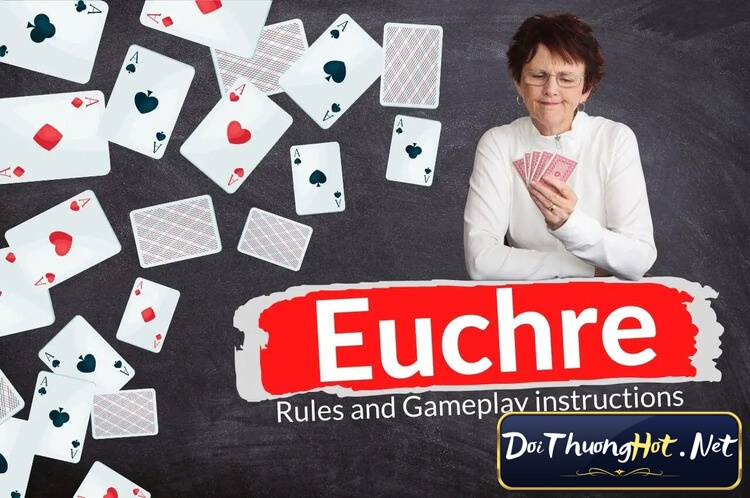
- Card combinations: Assess the combination of high-ranking cards, trump cards, and cards of the same suit. High-ranking cards and trump cards increase the likelihood of winning tricks, while cards of the same suit can be used to support your partner.
- Trump potential: Determine the potential of your hand to win tricks with the trump suit. Assess the presence of high-ranking trump cards, such as the Right Bower and other strong trump cards, as they greatly enhance your hand’s strength.
- Non-trump strength: Evaluate the strength of your non-trump cards, as they can still contribute to winning tricks when the trump suit is not played. High-ranking cards of non-trump suits, especially those of the same color as the trump, can be valuable in certain situations.
- Hand distribution: Consider the distribution of cards across suits in your hand. Balanced distribution or having a long suit can impact your bidding decisions and potential for winning tricks.
By accurately assessing your hand strength, you can make informed bidding decisions, declare the trump suit wisely, and play your cards strategically in this game. This skill allows you to adapt your gameplay based on the strength of your hand, maximize trick wins, and increase your chances of success in this captivating card game.
B. Bidding strategies
Bidding strategies in this game are crucial for success, as they determine the trump suit and set the tone for gameplay. Employing effective bidding strategies can give you an advantage and increase your chances of reaching your bid. Here are key points to analyze and clarify this concept:
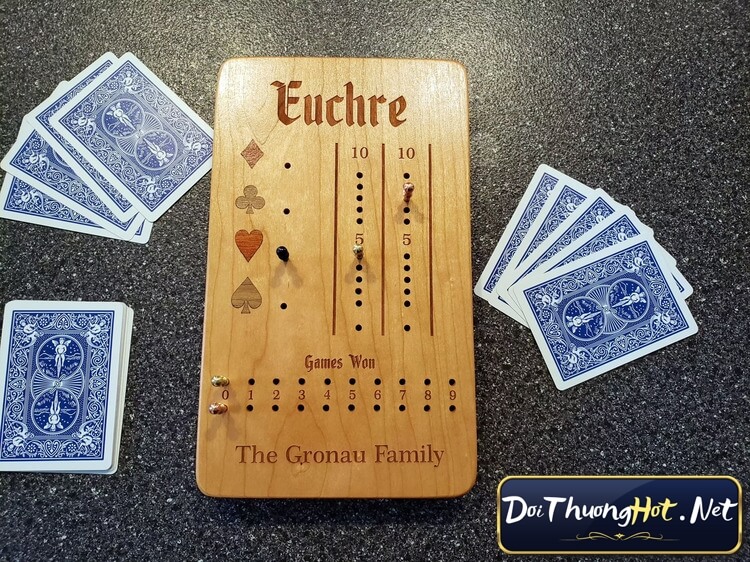
- Hand evaluation: Assess the strength of your hand, considering factors like high-ranking cards, trump potential, and distribution across suits. A strong hand with high-ranking trump cards and supporting non-trump cards warrants a more aggressive bidding strategy.
- Opening bid: Consider the strength of your hand and the potential to win a significant number of tricks. If you have a strong hand, consider opening with a bid that reflects your confidence. However, if your hand is weaker or lacks trump potential, it may be prudent to pass and let the next player make the opening bid.
- Reading opponents: Pay attention to the bidding patterns and signals from opponents. Evaluate their bids, passes, and body language to gain insight into the strength of their hands. This information can inform your bidding decisions and allow you to adjust your strategy accordingly.
- Partner communication: Effective communication with your partner is essential in Euchre. Use bidding to convey information about the strength of your hand, potential trump support, or the need for defensive play. This can help your partner make informed bidding decisions and coordinate strategies.
By employing strategic bidding strategies, assessing your hand strength, and effectively communicating with your partner, you can enhance your chances of success in this game. A combination of calculated risk-taking, adaptability, and understanding opponents’ bids can give you an edge in reaching your bid and winning the game.
C. Defensive play techniques
Defensive play techniques in this game are vital for preventing opponents from reaching their bid and maximizing your team’s chances of winning. Employing effective defensive strategies can disrupt opponents’ gameplay and increase your overall success. Here are key points to analyze and clarify this concept:
- Trump management: Pay close attention to the trump suit and track the high-ranking trump cards played. Retain your own high-ranking trump cards to potentially win tricks or prevent opponents from winning with their trump cards.
- Counting cards: Develop the ability to count cards and deduce which cards are still in play. This knowledge allows you to make informed decisions about which cards to play or hold back, improving your defensive capabilities.
- Blocking opponents: Play strategically to prevent opponents from winning tricks. Hold back high-ranking cards of non-trump suits to potentially block opponents’ attempts to win tricks.
- Reading opponents’ signals: Observe opponents’ plays and signals during gameplay. Look for patterns or signals that indicate their hand strength or preferred suits. This information can help you anticipate their moves and adjust your defensive strategy accordingly.
- Communication with your partner: Effective communication with your partner is crucial in defensive play. Exchange information about your hand, signal potential blocks, or communicate the need for defensive moves to optimize your defense as a team.
By employing defensive play techniques, such as trump management, card counting, blocking opponents, reading signals, and effective communication, you can significantly impact the outcome of Euchre games. These strategies enhance your ability to disrupt opponents’ gameplay, protect your own tricks, and increase your team’s chances of emerging victorious.
D. Teamwork and communication
Teamwork and communication are key factors in successful this game gameplay, as they allow partners to coordinate strategies, share information, and maximize their chances of winning. Here are key points to analyze and clarify this concept:
- Partner coordination: Coordinate with your partner to ensure effective teamwork. Discuss bidding strategies, share information about the strength of your hands, and adjust gameplay accordingly.
- Communication signals: Develop and utilize communication signals with your partner to convey information discreetly. These signals can indicate trump support, the need for defensive play, or specific card holdings.
- Reading your partner: Pay attention to your partner’s plays and signals to gain insights into their hand strength and preferred suits. This information can help you make informed decisions during gameplay.
- Trust and support: Foster a sense of trust and support with your partner. Rely on each other’s judgment, provide encouragement, and adapt strategies as needed to optimize your teamwork.
- Adapting to partner styles: Understand and adapt to your partner’s playing style and preferences. Flexibility and willingness to adjust tactics based on your partner’s strengths can enhance overall performance.
By emphasizing teamwork, effective communication, and understanding your partner’s gameplay, you can enhance your Euchre experience. Strong collaboration allows for coordinated strategies, better decision-making, and improved chances of achieving your bid and winning the game.
V. Variations of Euchre
A. Regional variations and rule adaptations
Regional variations and rule adaptations in this game add diversity and depth to the game, making it even more captivating for players around the world. Different regions have embraced unique rule variations that introduce exciting twists and strategic considerations. Here are key points to analyze and clarify this concept:
- Regional rule variations: Euchre has evolved differently in various parts of the world, resulting in regional rule variations. For example, some regions use a 32-card deck, while others incorporate additional rules like stick the dealer or farmers’ hand.
- Enhanced scoring systems: Certain regions have devised alternative scoring systems to add complexity or increase the pace of the game. These adaptations can modify the point values for specific achievements or introduce bonus points for certain scenarios.
- Bid escalation: In some variations, the bidding process includes the option for players to escalate the bid after the initial round, introducing an additional layer of strategy and competition.
- Alternative trump suit selection: While traditional Euchre relies on bidding for the trump suit, certain adaptations feature alternative methods for determining the trump suit, such as flipping the top card of the deck or utilizing a designated “up card.”
Exploring and embracing regional variations and rule adaptations can provide players with new challenges and fresh experiences in this game. It adds depth to the game and fosters a sense of community, as players from different regions can come together to share their unique approaches and strategies.
B. Three-player and two-player variations
Three-player and two-player variations of Euchre offer exciting alternatives for those seeking a different gameplay experience or when the typical four-player setup is not available. These variations adapt the game to accommodate different player counts while preserving the essence of this game. Here are key points to analyze and clarify this concept:

- Three-player Euchre: In the three-player variation, each player is dealt seven cards, and one card is placed face down as a “kitty.” The player who wins the bid can choose to play alone against the other two players, with the kitty added to their hand. Alternatively, they can play without the kitty and have a temporary partnership with the player who did not win the bid.
- Two-player Euchre: The two-player variation presents a unique challenge, as players compete against each other directly. The deck is reduced to 24 cards by removing all cards below 9, and each player is dealt 12 cards. The bidding process remains similar, with the highest bidder declaring the trump suit and leading the first trick.
These variations provide an opportunity to enjoy Euchre in different settings or when fewer players are available. They require players to adapt their strategies, as the dynamics of the game change with altered player counts. Exploring three-player and two-player variations allows for a more versatile Euchre experience, ensuring the game remains engaging and enjoyable in various circumstances.
C. Euchre in different countries
Euchre in different countries showcases the game’s global appeal and the unique adaptations it has undergone across various cultures. While this game has roots in Europe and gained prominence in the United States, it has also captured the interest of players in different countries around the world. Here are key points to analyze and clarify this concept:
- Canada: Euchre has become a beloved pastime in Canada, especially in provinces like Ontario. Canadian variations may include a different scoring system or additional rules to enhance gameplay.
- Australia: Euchre has found popularity in Australia, particularly in social and pub settings. Australian variations may involve a 32-card deck or rule adaptations to add complexity and challenge.
- United Kingdom: Euchre has made its mark in the United Kingdom, where it is enjoyed in both social and competitive settings. UK variations may incorporate local rule adaptations or scoring systems.
- Germany: In Germany, Euchre is known as “Bauernschnapsen” and is a popular game played by families and friends. The German variation may include rule modifications or additional scoring elements.
- Netherlands: Euchre, referred to as “Boerenbridge,” has gained a following in the Netherlands. Dutch variations may have unique rule adaptations or scoring systems tailored to local preferences.
Euchre’s presence in different countries demonstrates its widespread appeal and versatility. These regional adaptations and rule variations not only add depth and complexity to the game but also foster a sense of cultural connection and enjoyment among players worldwide.
VI. Euchre in Online Platforms
A. Overview of online Euchre platforms
An overview of online Euchre platforms reveals the growing popularity of digital platforms that allow players to enjoy the game of Euchre online. These platforms provide convenient and accessible options for players to connect with fellow enthusiasts from around the world. Here are key points to analyze and clarify this concept:
- Multiplayer options: Online Euchre platforms offer multiplayer functionality, enabling players to join virtual rooms and compete against others in real-time. This fosters a sense of community and allows for social interaction during gameplay.
- User-friendly interfaces: These platforms typically feature intuitive and user-friendly interfaces, making it easy for players to navigate through game rooms, create custom tables, or join existing ones.
- Varied game modes: Online Euchre platforms often provide a range of game modes, catering to different preferences and skill levels. Players can choose between casual games, competitive tournaments, or even practice modes to sharpen their skills.
- Chat and communication features: Many platforms incorporate chat functionality, allowing players to communicate with their partners or opponents during gameplay. This adds an element of camaraderie and enables strategic discussions.
- Cross-platform compatibility: Online Euchre platforms are designed to be compatible across different devices, including computers, smartphones, and tablets. This ensures that players can enjoy the game on their preferred platforms and easily connect with others.
Online Euchre platforms have revolutionized the way the game is played, offering convenience, global accessibility, and interactive features that enhance the overall experience. Whether players are seeking casual games or competitive play, these platforms provide a virtual space to indulge in the captivating world of this game.
Multiplayer options and social features are key elements of online Euchre platforms that enhance the gaming experience and foster a sense of community among players. These platforms offer a range of multiplayer options and social features to facilitate interaction and engagement. Here are key points to analyze and clarify this concept:
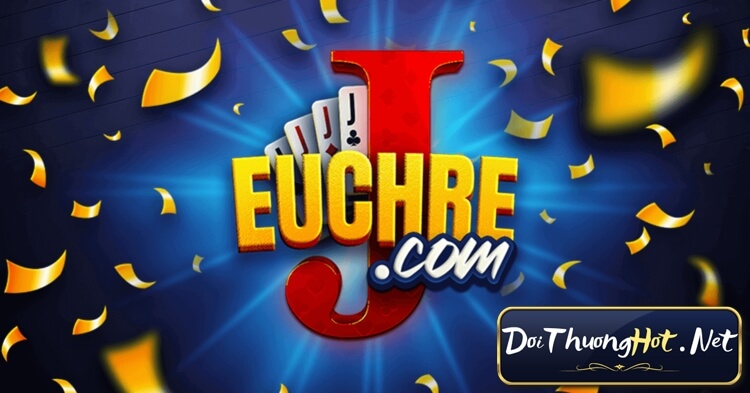
- Virtual game rooms: Online Euchre platforms provide virtual game rooms where players can join and compete against others in real-time. This multiplayer functionality allows for exciting head-to-head matches or team-based gameplay.
- Global player base: These platforms attract players from around the world, creating a diverse and vibrant community. This global player base offers the opportunity to connect with individuals from different backgrounds and cultures who share a passion for Euchre.
- Chat functionality: Online Euchre platforms incorporate chat features that enable players to communicate with their partners or opponents during gameplay. This fosters social interaction, facilitates strategic discussions, and adds a sense of camaraderie among players.
- Friend lists and invitations: Many platforms allow players to create friend lists, invite specific players to games, or join private tables. These features enable players to connect with friends or form virtual Euchre communities.
- Leaderboards and rankings: Online Euchre platforms often include leaderboards and ranking systems that track players’ performance and allow for healthy competition. This adds an element of achievement and motivation as players strive to climb the ranks.
Multiplayer options and social features offered by online Euchre platforms create an engaging and interactive environment for players. The ability to connect with fellow enthusiasts, communicate during gameplay, and compete against others worldwide amplifies the enjoyment and sense of community within the Euchre gaming community.
C. Benefits and drawbacks of playing Euchre online
Benefits and drawbacks of playing Euchre online provide insights into the advantages and potential challenges players may encounter when engaging in online Euchre gameplay. Understanding these factors can help players make informed decisions about their preferred gaming experience. Here are key points to analyze and clarify this concept:

- Benefits:
- Convenience: Online Euchre platforms offer the convenience of playing anytime, anywhere, without the need for physical cards or gathering a group of players.
- Global Accessibility: Players can connect with fellow enthusiasts from around the world, expanding their social circle and experiencing different playing styles.
- Variety of Opponents: Online platforms provide a diverse player base, ensuring a wide range of skill levels and gameplay strategies.
- Availability of Tutorials and Resources: Many online platforms offer tutorials, guides, and resources that can help players improve their skills and understand the game better.
- Flexible Game Modes: Online Euchre platforms often offer different game modes, allowing players to choose between casual games, competitive tournaments, or practice sessions.
- Drawbacks:
- Lack of Physical Interaction: Online gameplay lacks the physical interaction and social dynamics that come with playing in person.
- Potential Connectivity Issues: Depending on internet connections, players may experience latency, which can impact gameplay experience.
- Limited Nonverbal Cues: Online platforms may limit nonverbal cues and gestures, making it harder to read opponents or communicate subtle strategies.
- Risk of Cheating: While online platforms implement security measures, there is always a possibility of players engaging in unfair practices.
Understanding the benefits and drawbacks of online Euchre gameplay allows players to make an informed decision about their preferred playing environment. With convenience, global accessibility, and diverse opponents as some of the benefits, players can enjoy engaging Euchre experiences while being aware of potential challenges such as limited physical interaction and connectivity issues.
VII. Euchre Tournaments and Competitive Play
A. Overview of Euchre tournaments
An overview of Euchre tournaments provides insights into the exciting world of competitive Euchre play, where skilled players gather to showcase their expertise and compete for prizes. Euchre tournaments offer a platform for players to test their skills, engage in strategic gameplay, and enjoy a spirited atmosphere. Here are key points to analyze and clarify this concept:

- Structured Competition: Euchre tournaments follow a structured format with predetermined rules and scoring systems, ensuring fair and organized gameplay.
- Multiple Rounds: Tournaments typically consist of multiple rounds, where players compete against different opponents to accumulate points and advance to the next stage.
- Variety of Formats: Euchre tournaments may adopt various formats, including single elimination, double elimination, round-robin, or Swiss system. Each format offers unique challenges and opportunities for players to showcase their skills.
- Prizes and Rewards: Tournaments often feature prizes or rewards for top-performing individuals or teams, adding an extra layer of motivation and excitement.
- Community and Camaraderie: Tournaments provide an opportunity for Euchre enthusiasts to connect, share strategies, and build relationships within the Euchre community. The competitive atmosphere fosters camaraderie and a shared passion for the game.
Euchre tournaments offer a thrilling experience for competitive players who are eager to test their skills against others. Participating in tournaments allows players to showcase their expertise, engage in strategic gameplay, and connect with like-minded individuals. Whether it’s the thrill of the competition, the opportunity for recognition, or the sense of community, this game’s tournaments provide a platform for players to immerse themselves in the exciting world of competitive Euchre play.
B. Competitive Euchre organizations and events
Competitive Euchre organizations and events play a significant role in fostering the growth of the Euchre community and providing platforms for players to showcase their skills on a larger scale. These organizations and events create opportunities for players to engage in competitive play, connect with fellow enthusiasts, and celebrate the game they love. Here are key points to analyze and clarify this concept:
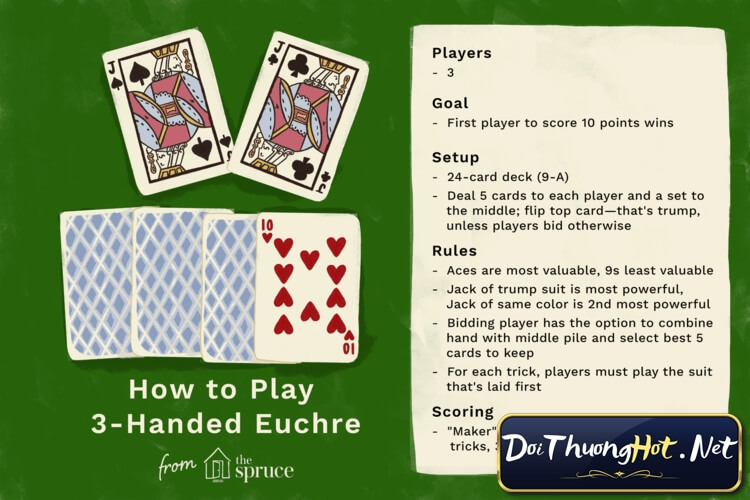
- Organizations: Euchre organizations, such as Euchre associations or clubs, bring together players from local communities or regions, organizing regular tournaments, leagues, and events. They provide a structured environment for competitive play and often establish ranking systems to recognize top-performing players.
- National and International Events: Competitive Euchre events, ranging from regional championships to national or international tournaments, attract skilled players from various locations. These events showcase the highest level of Euchre play and often feature substantial prize pools or prestigious titles.
- Social and Charity Events: In addition to highly competitive events, Euchre organizations may host social or charity-oriented gatherings where players of all skill levels can participate in a friendly atmosphere. These events promote inclusivity, encourage social interaction, and may support charitable causes.
- Recognition and Achievements: Competitive Euchre organizations and events provide opportunities for players to gain recognition and celebrate their achievements. Winning titles, earning rankings, or receiving awards within the Euchre community are significant milestones for passionate players.
Competitive Euchre organizations and events contribute to the development and vibrancy of the Euchre community. By fostering competitive play, connecting players, and providing avenues for recognition and celebration, these organizations and events create an engaging and fulfilling environment for this game enthusiasts to thrive and showcase their skills on a larger stage.
C. Strategies for tournament play
Strategies for tournament play in Euchre are essential for achieving success in competitive settings and maximizing your chances of winning. Tournament play requires a different level of strategy and adaptability compared to casual games. Here are key points to analyze and clarify this concept:
- Mastering bidding decisions: Bidding wisely is crucial in tournaments. Assess your hand strength, evaluate opponents’ bidding patterns, and consider the risk-reward ratio before making bidding decisions. Calculated bids can give you an advantage and set the tone for the hand.
- Communication with partners: Effective communication with your partner is paramount. Develop clear and concise signaling systems to convey information about hand strength, trump support, or defensive strategies. Coordination with your partner can lead to better decision-making and increased trick-taking potential.
- Observing opponents: Pay attention to opponents’ plays and signals to gather information about their hand strength and preferred suits. Adapt your strategies accordingly to counter their tactics and exploit weaknesses.
- Risk management: Understand when to take risks and when to play defensively. Assess the score, the stage of the tournament, and the potential rewards of a successful bid. In certain situations, conservative play can be more advantageous than aggressive bids.
- Adaptability and flexibility: Be prepared to adapt your strategies based on changing dynamics. Readjust your tactics to suit different opponents, table conditions, or rule variations encountered during the tournament.
By employing strategic bidding decisions, effective communication, astute observation of opponents, risk management, and adaptability, you can elevate your tournament gameplay in Euchre. These strategies enable you to make calculated moves, anticipate opponents’ actions, and increase your chances of achieving victory in competitive Euchre tournaments.
VIII. Euchre in Popular Culture
A. Euchre in literature, movies, and TV shows
Euchre has made appearances in various forms of popular culture, including literature, movies, and TV shows, showcasing its enduring presence and influence. In literature, Euchre has been referenced in classic works such as Mark Twain’s “Adventures of Huckleberry Finn,” where it is played by the characters as a social pastime. The game has also been featured in contemporary literature, adding a touch of authenticity to character interactions and scenes.
In the realm of film and television, Euchre has been depicted in both dramatic and comedic contexts. It has been used as a plot device, showcasing the camaraderie or competition among characters. Movies like “The Cincinnati Kid” and “Four Dogs Playing Poker” include scenes featuring Euchre games, highlighting the game’s strategic nature and the tension that arises during play. Additionally, Euchre has appeared in TV shows such as “Brooklyn Nine-Nine” and “House of Cards,” adding depth to character dynamics and providing entertaining moments.
These depictions in literature, movies, and TV shows contribute to the cultural significance of Euchre, further solidifying its place as a beloved card game with a rich history and enduring appeal.
B. Euchre references and influences in music and art
Euchre’s presence extends beyond the realms of literature, movies, and TV shows into the world of music and art. While references to Euchre in music may be less common, the game has occasionally been mentioned in song lyrics, often used as a metaphor for life’s uncertainties or as a symbol of camaraderie and social interaction. These references highlight the cultural significance and recognition of Euchre as a shared experience among people.
In the realm of visual art, this game has also found its place. Paintings and illustrations depicting card games, including Euchre, have been created by artists across different time periods. These artworks capture the energy, dynamics, and social aspects of the game, providing glimpses into the historical and cultural contexts in which Euchre was enjoyed.
Overall, the references and influences of this game in music and art emphasize its place in popular culture, showcasing its ability to inspire creative expression and resonate with individuals across different artistic mediums.
IX. Euchre for Beginners
A. Tips and advice for new players
Tips and advice for new players embarking on their Euchre journey can help them navigate the game with confidence and improve their skills over time. Euchre may seem daunting at first, but with practice and the right guidance, new players can quickly grasp the basics and begin enjoying the game. Here are key points to analyze and clarify this concept:
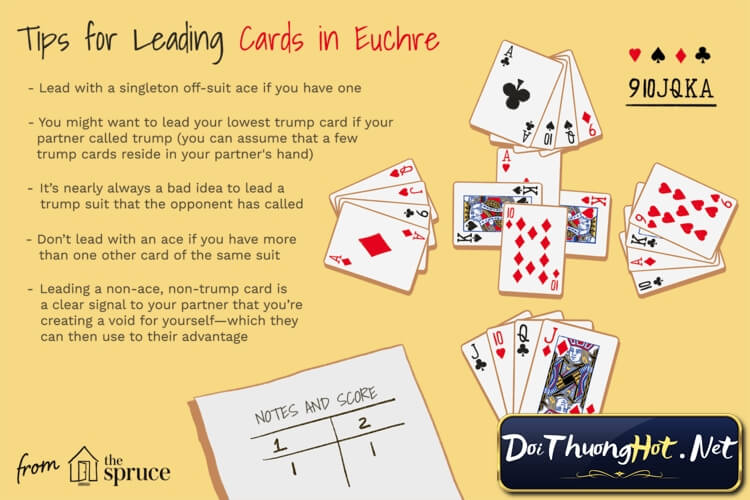
- Learn the rules: Familiarize yourself with the rules of Euchre, including card rankings, bidding, and trick-taking. Understanding the basics is crucial for getting started.
- Observe and learn from experienced players: Watch experienced players in action, either in person or through online platforms, to gain insights into strategies, card play, and decision-making. Learning from those with more experience can be immensely helpful.
- Practice with friends or in low-pressure environments: Start by playing with friends or in casual settings to gain confidence and practice your skills. This allows you to experiment, ask questions, and develop a solid foundation.
- Focus on teamwork and communication: Euchre is a team-based game, so teamwork and communication with your partner are key. Learn to communicate effectively, signal your intentions, and coordinate strategies to maximize your chances of success.
- Study common scenarios and tactics: Familiarize yourself with common scenarios and tactics in Euchre, such as trump management, blocking opponents, and defensive play. Understanding these concepts will improve your decision-making and overall gameplay.
By following these tips and advice, new players can enhance their Euchre journey and progress from beginners to skilled players. Embrace the learning process, practice regularly, and enjoy the game with a positive attitude. With time and experience, new players will develop their own strategies and become valued contributors to the world of this game.
B. Learning resources and tutorials
Learning resources and tutorials are valuable tools for new and aspiring Euchre players looking to enhance their understanding of the game and improve their skills. These resources provide structured guidance, tips, and strategies to help players navigate the intricacies of Euchre. Here are key points to analyze and clarify this concept:
- Online tutorials and videos: Many websites and online platforms offer tutorials and instructional videos specifically tailored to Euchre. These resources break down the game’s rules, card rankings, bidding strategies, and trick-taking techniques in a visual and interactive manner.
- Printed guides and rulebooks: Books, guides, and rulebooks dedicated to Euchre provide comprehensive explanations of the game’s fundamentals, along with advanced strategies and scenarios. These resources serve as reference materials for players to consult at their own pace.
- Mobile apps and game simulations: Mobile apps and game simulations offer interactive ways to learn Euchre. These applications provide virtual opponents, customizable difficulty levels, and in-app tutorials that guide players through the game step by step.
- Online forums and communities: Engaging in Euchre forums and online communities allows players to seek advice, ask questions, and learn from experienced players. These platforms foster a sense of community, where players can share their knowledge and engage in discussions about strategies and gameplay techniques.
By utilizing learning resources and tutorials, players can acquire a solid foundation in this game and develop their skills over time. Whether through online tutorials, printed guides, mobile apps, or community engagement, these resources provide valuable support and guidance for players at all levels. Embracing these learning opportunities can accelerate the learning curve and lead to a more enjoyable and rewarding this game experience.
C. Common mistakes to avoid
Common mistakes to avoid in this game can help players improve their gameplay and prevent costly errors. Being aware of these mistakes and taking steps to avoid them can significantly enhance a player’s overall performance. Here are key points to analyze and clarify this concept:
- Overbidding: One common mistake is overestimating the strength of your hand and bidding more than you can realistically achieve. It is important to assess your hand objectively and bid accordingly to avoid setting unrealistic expectations.
- Misjudging card values: Misjudging the value of certain cards, such as trump cards or high-ranking non-trump cards, can lead to poor decision-making during gameplay. Understanding the relative strength of different cards is crucial for making strategic moves.
- Lack of communication: Failing to effectively communicate with your partner can hinder your ability to coordinate strategies and maximize your team’s potential. Clear and concise communication is essential in Euchre, so make sure to develop effective signaling systems or conventions with your partner.
- Ignoring opponents’ plays: Disregarding the plays and signals of your opponents can lead to missed opportunities or failing to anticipate their tactics. Paying attention to opponents’ moves and adapting your strategies accordingly can give you a competitive edge.
- Failure to adapt: Failing to adapt your strategies to changing circumstances, such as rule variations or opponent behavior, can limit your success in Euchre. Flexibility and the ability to adjust your gameplay are key elements in achieving positive outcomes.
By avoiding these common mistakes, players can elevate their Euchre gameplay and improve their overall performance. Taking the time to analyze and rectify these errors will lead to more strategic decision-making, better communication with partners, and increased success on the Euchre table.
X. Conclusion
A. Summary of key points
In summary, the key points discussed throughout the article include:

- Euchre is a popular card game known for its trick-taking and partnership gameplay.
- The objective of the game is to be the first team to reach a predetermined score by winning tricks.
- Euchre has its origins in Europe and has evolved over time, spreading to different regions and adapting to local variations.
- The game has gained popularity in literature, movies, TV shows, music, and art, showcasing its cultural influence.
- Understanding the deck of cards, card rankings, determining the trump suit, bidding and declaring, tricks, and scoring are fundamental to successful gameplay.
- Defensive play techniques, assessing hand strength, and strategic bidding strategies contribute to a competitive edge.
- Euchre tournaments provide platforms for skilled players to compete, connect, and showcase their expertise.
- Online Euchre platforms offer convenient multiplayer options and social features, allowing players to engage with a global community.
- Learning resources, tutorials, and avoiding common mistakes can help new players improve their skills and understanding of the game.
By applying these insights and strategies, players can enhance their Euchre experience, adapt to different playing environments, and increase their chances of success in this captivating card game.
| Advantages | Description |
|---|---|
| 1. Easy to Learn | Euchre has straightforward rules, making it easy for new players to grasp the basics and start enjoying the game. |
| 2. Strategic Gameplay | Euchre involves strategic decision-making, such as bidding and card play, which adds depth and excitement to the game. |
| 3. Partnership Dynamic | The partnership element in Euchre fosters teamwork, communication, and coordination, enhancing the social experience. |
| 4. Quick Rounds | Euchre rounds are typically quick-paced, allowing for multiple games in a short time and keeping players engaged. |
| 5. Wide Popularity | Euchre has a broad player base and is popular in various regions, providing ample opportunities to find fellow players. |
| Disadvantages | Description |
|---|---|
| 1. Limited Player Count | Euchre requires a specific number of players (typically four), which can be challenging to gather. |
| 2. Reliance on Partner | The partnership aspect means that your success in Euchre can be influenced by your partner’s skills. |
| 3. Limited Card Variations | Euchre uses a specific deck of 24 cards, which may feel limited compared to games with larger decks. |
B. Final thoughts on the game of Euchre
In conclusion, this game is a captivating and strategic card game that continues to captivate players worldwide. With its rich history, variations, and cultural influences, this game offers a dynamic and engaging gameplay experience. The game’s partnership and trick-taking mechanics foster teamwork, communication, and strategic decision-making. Whether played casually with friends or competitively in tournaments, this game provides a platform for players to showcase their skills, connect with others, and enjoy the camaraderie that comes with shared gameplay experiences.
With a solid understanding of the rules, card rankings, bidding strategies, and defensive play techniques, players can navigate the complexities of Euchre and elevate their gameplay. Online platforms and resources offer convenient opportunities for players to engage in multiplayer games, access tutorials, and connect with a global community of Euchre enthusiasts.
Ultimately, the enduring popularity of this game lies in its ability to bring people together, stimulate strategic thinking, and provide endless hours of entertainment. So, whether you’re a seasoned player or new to the game, embrace the challenge, learn from experiences, and savor the joy of this game. Let the cards be dealt, the bidding begin, and the tricks be won as you immerse yourself in the rich and rewarding world of this game.
XI. Additional Resources
A. List of recommended Euchre websites and apps
Certainly! Here is a list of recommended Euchre websites and apps where you can play, learn, and connect with other Euchre enthusiasts:
- World of Card Games – A website that offers free online Euchre gameplay with multiplayer options and customizable settings.
Website: https://www.worldofcardgames.com/ - VIP Euchre – A popular Euchre app available for both iOS and Android devices, offering multiplayer gameplay, tournaments, and various skill levels.
Website: https://www.vipeuchre.com/ - Euchre 3D – A feature-rich Euchre app for iOS and Android, providing realistic gameplay, customizable rules, and multiplayer options.
Website: http://www.a-Star-software.co.uk/ - Trickster Euchre – A cross-platform app available on iOS, Android, and Windows, offering multiplayer gameplay, customizable rules, and social features.
Website: https://www.trickstercards.com/ - Euchre Online – A website that allows you to play Euchre online with other players, featuring multiple game modes and skill levels.
Website: https://www.euchreonline.net/ - Pogo – A gaming platform that includes Euchre among its offerings, allowing you to play Euchre online with other players or against computer opponents.
Website: https://www.pogo.com/ - Euchre 4U – An online Euchre community that provides resources, tutorials, and a platform to connect with other Euchre players.
Website: https://www.euchre4u.com/
Remember to explore these platforms to find the one that suits your preferences in terms of gameplay features, community engagement, and device compatibility. Enjoy playing this game and connecting with fellow enthusiasts!
B. Books and publications on Euchre
Here are some recommended books and publications on Euchre that can provide valuable insights, strategies, and resources for players:
- “Euchre for Everyone: The Complete Guide to Playing and Winning” by Joe Andrews – A comprehensive guidebook that covers the basics of Euchre, including rules, strategies, and advanced techniques.
- “Win at Euchre” by Dan Barlow – This book offers a strategic approach to Euchre, focusing on bidding, card play, and effective partnership communication.
- “Euchre (Game Lovers Series)” by Joy Bloomfield – A beginner-friendly guide that introduces the game of Euchre, explains the rules, and provides tips for improving gameplay.
- “Euchre: How to Play and Win” by William F. Kratt – This book covers Euchre rules, bidding strategies, card play techniques, and defensive tactics, suitable for players of various skill levels.
- “The Art of Euchre: A Guide to Advanced Play” by Eddie Kantar – Geared towards more experienced players, this book delves into advanced Euchre strategies, including positional play, reading opponents, and advanced bidding techniques.
- “The Little Giant Book of Euchre” by Michael S. Page – A pocket-sized reference guide that provides rules, tips, and tactics for Euchre players looking to enhance their game.
These books offer a range of insights and resources for Euchre players, from beginners to more experienced enthusiasts. Whether you’re looking to learn the game, improve your strategies, or delve into advanced techniques, these publications can be valuable additions to your Euchre library.
C. Euchre communities and forums
Certainly! Here are some popular Euchre communities and forums where you can connect with other Euchre players, share experiences, seek advice, and engage in discussions about the game:
- EuchreForum.com – An online community dedicated to Euchre discussions, strategies, and rule variations. It offers a platform to connect with fellow Euchre enthusiasts and share insights.
Website: https://www.euchreforum.com/ - Reddit – r/Euchre – The Euchre subreddit is a vibrant community where players can ask questions, share stories, discuss strategies, and find resources related to Euchre.
Website: https://www.reddit.com/r/euchre/ - EuchrePlayers.com – An online community and forum that caters to Euchre players of all levels. It provides a platform to connect, share experiences, and participate in discussions about the game.
Website: https://www.euchreplayers.com/ - BoardGameGeek – Euchre Forum – BoardGameGeek is a popular gaming community with a dedicated Euchre forum. It offers a space for Euchre enthusiasts to discuss strategies, find game recommendations, and connect with other players.
Website: https://boardgamegeek.com/forum/24/euchre - Yahoo Groups – Euchre Lovers – This Yahoo Group is an active community of Euchre players where you can engage in discussions, find opponents, and exchange ideas related to the game.
Website: https://groups.yahoo.com/neo/groups/euchrelovers/info
These communities and forums provide platforms to connect with fellow Euchre players, share strategies, seek advice, and celebrate the game. Whether you’re a beginner looking to learn more or an experienced player wanting to engage with like-minded individuals, these communities offer a supportive and interactive space for this game enthusiasts.
XII. FAQs about Euchre
What is Euchre?
Euchre is a popular card game that originated in Europe and is played with a deck of 24 cards. It involves trick-taking and partnership gameplay, where players aim to win the majority of tricks to score points and reach a predetermined score.
How many players are needed to play Euchre?
Euchre is typically played with four players, divided into two partnerships. However, variations of the game exist for three players and even two players, with modified rules and gameplay mechanics.
What is a “trump” suit in Euchre?
In this game, a trump suit is a designated suit that outranks all other suits for the duration of a hand. The player who wins the bidding process gets to choose the trump suit, and any card of that suit becomes more powerful than cards of other suits.
What is the objective of Euchre?
The objective of Euchre is to be the first partnership to reach a predetermined score, typically 10 or more points. Points are earned by winning tricks during hands and meeting or exceeding the number of tricks bid.
What are some common strategies in Euchre?
Common strategies in this game include assessing hand strength, making strategic bids based on the strength of your cards, communicating with your partner through signals, managing trumps effectively, and adapting your gameplay based on the score and opponents’ actions.















